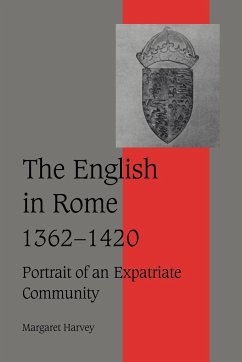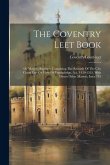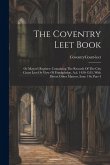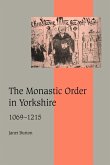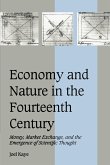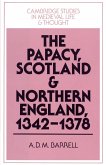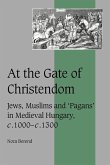A study of the English community in Rome between 1362 and 1420 in its political, commercial and religious setting.
Centred on a study of the early archives of the Venerabile Collegio Inglese in Rome, the predecessor of the English College of today, this book is more than a study of the beginnings of English institutions in Rome. It attempts to place the English community there between 1362, when the first English hospice for poor people and pilgrims was founded, and 1420 in its political, commercial and religious setting. It includes a portrait of a group of English merchants, with their wives and widows, as well as members of the papal curia in Rome (from 1376), including a study of Cardinal Adam Easton, a well-known scholar and opponent of John Wycliffe. The book also uncovers a notable although unsuccessful attempt to forward English participation in commerce with Rome before 1420, revealing important links between the English laity in Rome and the city of London.
Review quote:
'- engaging - Harvey has dug thoroughly in the archives of the English College, turfing up obscure and entralling information.' Times Literary Supplement
'- an imaginative and scholarly study of a neglected but pivotal group of migrant Englishmen.' The English Historical Review
Table of contents:
Acknowledgements; Introduction; 1. The setting I: Rome in the later fourteenth century, 1362-1376; 2. The setting II: Rome 1376-1420; 3. S Thomas's hospice; 4. S Chrysogonus' hospice and other enterprises; 5. The laity in Rome; 6. Women; 7. The English in the curia 1378-1420: I; 8. The English in the curia 1378-1420: II; 9. The career of John Fraunceys; 10. Adam Easton, an English cardinal: his career; 11. Adam Easton's ideas and their sources; 12. Conclusion; Bibliography; Index.
Hinweis: Dieser Artikel kann nur an eine deutsche Lieferadresse ausgeliefert werden.
Centred on a study of the early archives of the Venerabile Collegio Inglese in Rome, the predecessor of the English College of today, this book is more than a study of the beginnings of English institutions in Rome. It attempts to place the English community there between 1362, when the first English hospice for poor people and pilgrims was founded, and 1420 in its political, commercial and religious setting. It includes a portrait of a group of English merchants, with their wives and widows, as well as members of the papal curia in Rome (from 1376), including a study of Cardinal Adam Easton, a well-known scholar and opponent of John Wycliffe. The book also uncovers a notable although unsuccessful attempt to forward English participation in commerce with Rome before 1420, revealing important links between the English laity in Rome and the city of London.
Review quote:
'- engaging - Harvey has dug thoroughly in the archives of the English College, turfing up obscure and entralling information.' Times Literary Supplement
'- an imaginative and scholarly study of a neglected but pivotal group of migrant Englishmen.' The English Historical Review
Table of contents:
Acknowledgements; Introduction; 1. The setting I: Rome in the later fourteenth century, 1362-1376; 2. The setting II: Rome 1376-1420; 3. S Thomas's hospice; 4. S Chrysogonus' hospice and other enterprises; 5. The laity in Rome; 6. Women; 7. The English in the curia 1378-1420: I; 8. The English in the curia 1378-1420: II; 9. The career of John Fraunceys; 10. Adam Easton, an English cardinal: his career; 11. Adam Easton's ideas and their sources; 12. Conclusion; Bibliography; Index.
Hinweis: Dieser Artikel kann nur an eine deutsche Lieferadresse ausgeliefert werden.

